Aicomp leverages its extensive customer project experience to develop preconfigured software solutions. Customers enjoy personalized combination options and swift, secure implementation approaches.
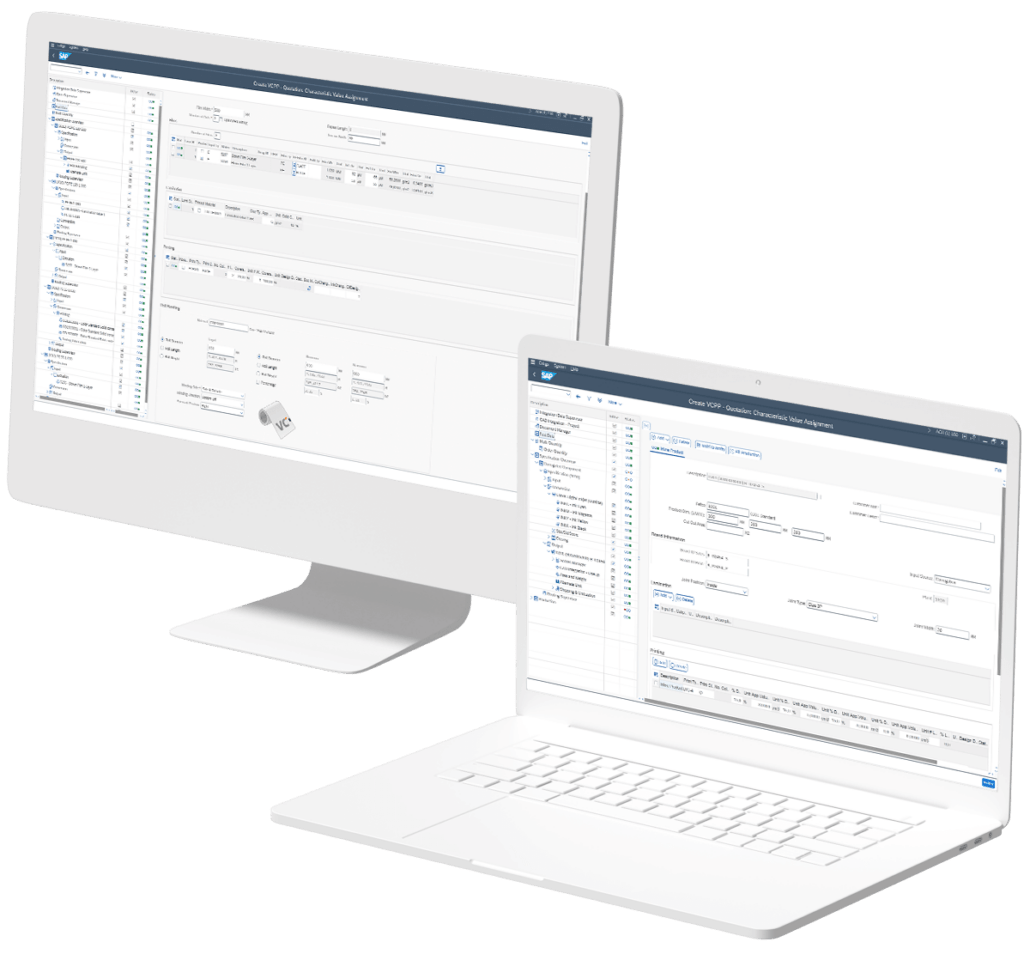
Benefit from stable and reliable ERP software platforms for your business processes that are proven for your needs.
Our configuration solutions inside the ERP system optimize CPQ (Configure Price Quote) processes essentially.
Thanks to comprehensive industry know-how, important processes and configurations are already prepared.
Standardized interfaces and integrations with industry-specific partners create error-free end-to-end processes.
Keeping an ear to the market, we are constantly developing new applications to make companies even more efficient.
Over two decades of groundbreaking innovations in various industries have enabled companies to enhance their operations significantly. Discover how our tailored industry solutions can empower your business transformation.
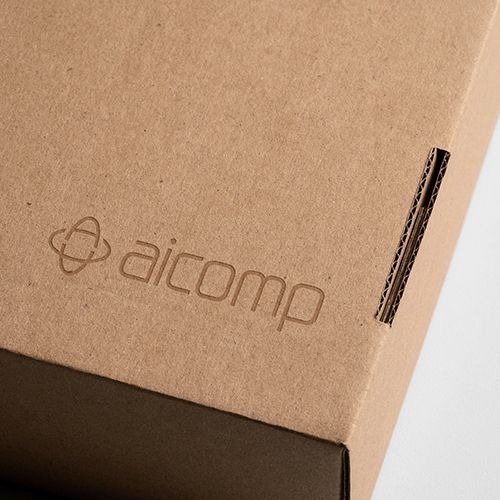
The preconfigured solution for corrugated packaging covers all essential business processes, from simple sheet production to intricate FEFCO standard cartons and complex POS displays.
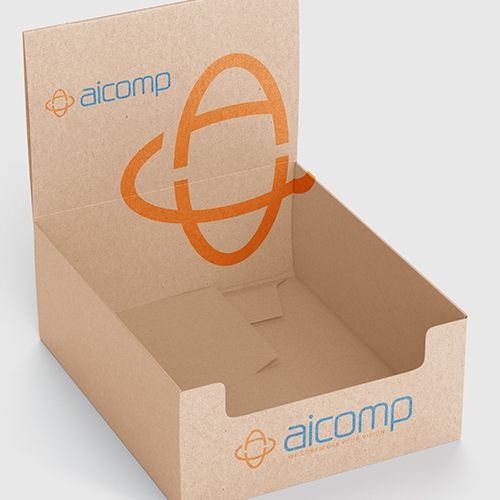
The preconfigured solution for folding cartons covers essential business processes, catering to the production of ECMA standard products as well as multi-part items with intricate CAD designs.
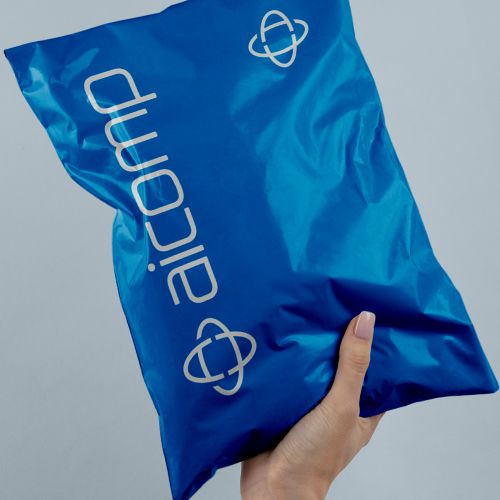
The preconfigured solution for flexible packaging assists in all pertinent business processes, from producing basic films to intricate bag manufacturing, including recipe management.
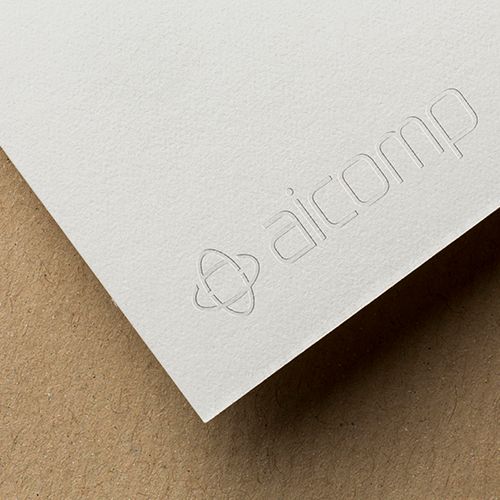
The board & paper industry-specific solution supports vital business processes for pulp and paper reel and sheet production, encompassing comprehensive recipe and consumption management.
Preconfigured processes as well as product & production data paired with an absolute industry focus create clarity in every project step.
You get what you need - our industry-experienced consultants and developers ensure the right solution for your company.
Successful projects over more than 20 years form the solid foundation for our ERP software solutions. Ask our customers for feedback.
Working at eye level with our customers and the will for automation enables efficient workflows for improved productivity.
An excerpt of our customers who rely on our industry-specific software solutions.


Products can be sold and handled in different units of measure. With “alternate units”, you can define which units are to be considered and how they are calculated. If one of the units cannot be calculated due to missing data, this unit is hidden.
For frequently recurring products, a template can be created for this product with all the necessary product specifications or even just parts of the specification, which can then be quickly used for a new product configuration.
Predefined conversion steps (refining processes) are a core feature of our industry solutions, ensuring efficiency across key processes. If a tailored industry solution isn’t yet available, we’ll work closely with you to seamlessly integrate the necessary conversion steps into the system, delivering a solution that meets your unique production needs.
Enables the cross-plant production of semi-finished products or production steps that are recorded as one product for the customer in the order. This means that individual production steps or individual parts do not have to be divided into different quotations.
You have the possibility to add documents to a configuration using SAP Standard Functionality of Documents (SAP DMS). In an overview you can see the data Document Type, Document Part, Document Number, Document Version, Document Description, Document Files, Status, In Use.
Dummy materials support the product configuration of previously unknown components (raw materials). Dummy materials are used during the quotation process and are replaced by actual procurement materials before processing a sales order.
The fast data entry supports you to create faster specification of configurations. The fast data screen doesn’t support the full scope and complexity of configuration but concentrates on the most common scenarios.
Industry-specific product styles are configured with product-related settings. These can be used during product configuration and are used to determine the quantities of raw materials or the size of semi-finished goods for production.
Machine and routing functions are orchestrated by categorizing machines into types based on their common capabilities. Defined thresholds determine the potential tasks that each machine type can handle. Production Routes then dictate the sequence of production steps, ensuring that each process step is equipped with the necessary tools and constraints for efficient operation.
You configure your products from customer inquiries in our product configurators and can, for example, have a large amount of data automatically created in the ERP after the order is received. Various activities can be set up with a variety of products ranging from a simple material creation with pricing conditions to the creation of inspection types and the assignment to inspection plans as well as packing instructions. For procurement materials the Purchasing Info Record as well as the Purchasing Source List can be created.
The material workbench is used for consolidated material maintenance in an industry and use-case specific overview. Individual materials that are assigned to a configuration can be edited here. Various industry-relevant scenarios, such as the maintenance of purchased materials or recipe management (e.g. for films) are available in the material workbench.
Effortless management of scale quantities, synchronized with identical product specifications but individually calculated production costs. The quantity in the offer can be compared with other open quantities or predefined quantities, such as a full truckload.
The Open Supervisor supports the creation of new configurations based on existing configurations, similar to a duplicate check, in which only later processing steps are to be changed. You can either copy a finished goods configuration or replace a procurement material and resolve the conversion steps defined in the configured procurement material master.
With Print Customization you can define the basic information for printing. This includes print type, technology (analog, digital), marking types and if adapters/print cylinders are allowed. Additionally, you can assign the allowed ink types per print as well as the position of the ink. In this customizing also available color codes (including L*a*b* information) are defined.
Separation supports the production process of more than one product from one sheet that will be separated afterwards for individual production steps. This can be a different product based on the design, print, or a combination of both.
Shipping & Unitization allows you to manage all the information you need (e.g. dimensions, limits) for packing and positioning your finished goods on pallets and preparing them for shipping, including the consumption of packaging material and label information.
The production of some products is very complex, due to the high number of SFGs and parallel sequences. To support the user during the configuration a graphical representation of the full product structure including its SFG components is provided.
Aicomp Industry Suite Adapts to Your Unique Needs
Discover the dynamic landscape of Aicomp Industry Suite options – on-premise, private cloud, and public cloud.
Choosing between on-premise, private cloud, or public cloud ERP deployment depends on various factors, including the organization’s preferences, budget, security requirements, and scalability needs. Some organizations may even opt for a hybrid approach, combining elements of different deployment models to meet their specific requirements.
Tailor your ERP experience for success.
You need to load content from reCAPTCHA to submit the form. Please note that doing so will share data with third-party providers.
More InformationYou are currently viewing a placeholder content from Facebook. To access the actual content, click the button below. Please note that doing so will share data with third-party providers.
More InformationYou are currently viewing a placeholder content from Instagram. To access the actual content, click the button below. Please note that doing so will share data with third-party providers.
More InformationYou are currently viewing a placeholder content from Instagram. To access the actual content, click the button below. Please note that doing so will share data with third-party providers.
More InformationYou are currently viewing a placeholder content from X. To access the actual content, click the button below. Please note that doing so will share data with third-party providers.
More Information